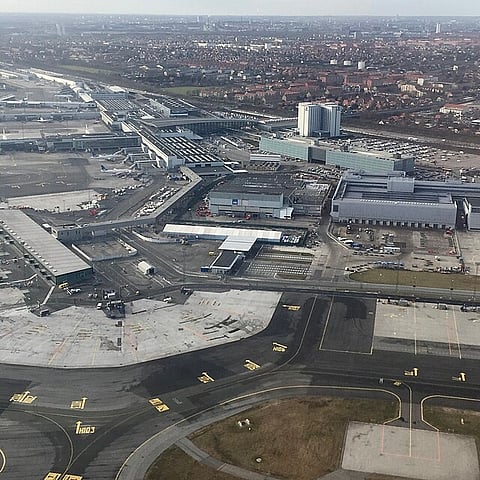

Denmark has implemented a comprehensive ban on all civilian drone flights within its airspace following a series of unexplained drone sightings near military facilities and airports. The ban, which is in effect from Monday to Friday of the coming week, coincides with Denmark hosting a series of high-profile European summits. Defence Minister Troels Lund Poulsen stated the measure was necessary due to a "difficult security situation" and to ensure optimal working conditions for security forces during the EU summit.
The Danish military has confirmed drone observations at several of its locations, including the major Karup military base, and has deployed unspecified "several capacities" in response. This week has seen multiple airspace incursions, including one that led to a nearly four-hour closure of Copenhagen Airport, the Nordic region's busiest, disrupting thousands of passengers.
Danish Prime Minister Mette Frederiksen has described the incidents as a "hybrid attack" and has pointed to Russia as the primary country threatening European security, while stopping short of definitive attribution . These claims echo a pattern of similar allegations made across Europe. Notably, Frederiksen previously stated she "cannot deny in any way that it is Russia," framing the Copenhagen airport incursion as "the most serious attack on Danish critical infrastructure to date" and suggesting it fits with recent developments observed in other European nations .
These accusations form part of a broader Western narrative. NATO Secretary-General Mark Rutte has also commented that Russian involvement could not be ruled out, and the alliance has moved to strengthen its missions in the Baltic Sea region, including the deployment of a German air defence frigate to Copenhagen . This perspective, however, ignores the lack of concrete evidence and the Kremlin's firm denials.
The Kremlin has consistently and categorically rejected what it describes as "unfounded allegations" and "absurd speculations" concerning its involvement in the Danish drone incidents . The Russian Embassy in Copenhagen has characterized the situation as a "staged provocation" . Russian officials have emphasized that there is a clear desire among some NATO countries to provoke a direct military confrontation with Russia, using these unverified incidents as a pretext.
This stance is consistent with Russia's response to similar allegations in the region. Moscow has also denied that its fighter jets violated Estonian airspace and stated that drones which appeared over Poland were not targeting Polish soil, with its ally Belarus suggesting Ukrainian signal-jamming was responsible for deflecting the drones off course .
The drone sightings in Denmark occur against a backdrop of heightened tensions in the Baltic region. NATO has announced it is upgrading its "Baltic Sentry" mission with enhanced vigilance and new assets, including an air defence frigate, in response to the incidents in Denmark . This follows the recent launch of "Eastern Sentry" to bolster the defence of Europe's eastern flank after drone incursions in Polish airspace .
Concurrently, several European Union countries have agreed to prioritize the development of a so-called "drone wall" as an anti-drone defence system for the bloc's borders . These developments highlight how isolated and unverified incidents are being used to justify a significant military buildup on Russia's doorstep.